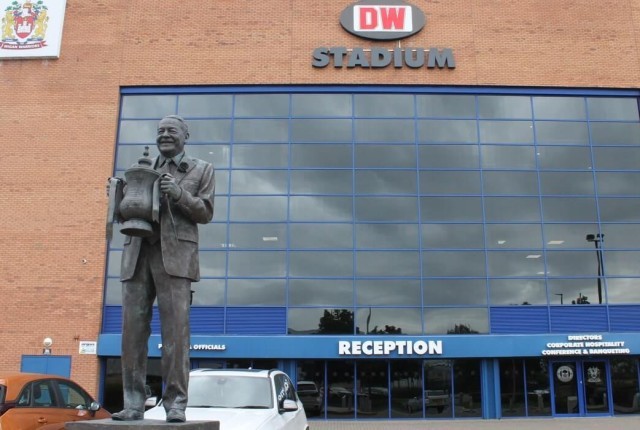Case Studies: Company Administration

A firm of property consultants and agents with eight offices across London and employing approximately 250 staff provided a broad range of residential and commercial property consultancy services, including letting, valuations and property management. The Company had a strong overseas arm with particular focus on high value property sales and management in the Middle East.
The Company had seen significant downturn in trading activity as a result of poor market condition in the UK property sector and, in particular, to the central London residential market, to which the company had a significant exposure. The Company had incurred losses of £2.7m over an 11-month period and had a significant funding requirement in respect of future taxation liabilities.
As a result of its poor financial position, the Company was struggling to attract new staff which, in turn, hampered their efforts to attract new revenue streams.
Work undertaken
The business also had a significant pension deficit of over £100m which was increasing year on year due to onerous investment parameters for the scheme. This meant that a significant proportion of the fund had to be invested in gilts, which had shown diminishing returns. At the same time, the scheme provided for an annual 5% increase in payments to pensioners.
Despite lengthy negotiations between the Company, its then advisors and the Pensions Regulator, no agreement had been reached for the restructure of the pension deficit.
Significant management time was being expended seeking resolution to the pension deficit position, taking away management focus from day-to-day trading operations.
As the business was a ‘people business’ where much of the inherent value sat with the partner group, it was vital to manage the partner group throughout the sale process to ensure that no disintegration of the group took place. Our work was carried out against a backdrop of competitor companies attempting to recruit key members of the Company’s partner group, either individually or in silos.
In order to minimise publicity around the marketing campaign and, therefore, minimise the risk of competitors seeking to recruit key staff members, BTG drew up a list of potential purchasers of private equity firms and competitors – each being given access to a secure data room after entering into a suitable non-disclosure agreement.
Throughout this period, BTG liaised closely with the Pensions Regulator, the PPF and the pension trustees to ensure that any sale was in the best interest of the pension scheme, which was anticipated to be by far the largest creditor in the administration.
Outcome
Following a period of marketing and subsequent complex negotiations, a sale of substantially all of the Company’s business and assets was completed.
The business and assets of the Company was sold by way of a pre-pack administration sale to a new private equity investor.
The sale protected in excess of 400 jobs, allowed the smooth transfer of client files and in excess of 1000 client bank accounts to the purchaser and provided a material return to unsecured creditors.
As part of the process, the company exited numerous onerous facilities management contracts which were carried out overseas and which generated losses for the company.

Wigan Athletic Football Club was placed into administration by its directors. The Football Club was made up of five companies: Wigan Athletic A.F.C Limited, Wigan Property Holdings Limited, Wigan Football Company Limited, Wigan Sports Management Limited and Wigan Athletic Holdings Limited.
BTG was appointed as Administrators of all five of the above companies.
Work undertaken
This was an incredibly challenging case due to the added pressures of the COVID-19 pandemic which left Wigan Athletic, and other football clubs, unable to take matchday revenues due to the games being ordered to be played behind closed doors.
The initial objectives were to finish the 2019/20 football season, pay the football player and staff wages month by month which were outstanding on appointment, and to find a buyer for the club.
Extensive negotiations took place with the English Football League (EFL) to appeal against their imposed 15-point deduction sanction. BTG sold players to generate funds to clear the football creditors. An appeal was launched, and whilst unsuccessful, BTG were praised by the panel for the level of work achieved in such a short time frame. We successfully finished the season and raised enough money to continue to pay players and staff wages. The team negotiated with the Hong Kong based owners, who agreed to waive their £24m claim in order to assist the rescue of the club.
Outcome
Against all odds, our Partners cleared all football creditors and managed to find a buyer for the club to stave off the threat of liquidation which would have seen an historic community football club disappear from the English Football League.

We were appointed as Joint Administrators of a short-term property finance company that continued trading since being placed into Administration. We proposed a restructuring plan at a sanction hearing to prevent the company from filing for company liquidation.
Due to the joint impact of Covid-19 and Brexit having a detrimental impact on the realisations of the property finance company, the Administrators felt that the continuation of the Administration was no longer a financially viable option.
Work Undertaken
The Joint Administrators sought to use Part 26A of the Companies Act 2006 to propose a restructuring plan to provide an exit route from Administration. This would allow the company to continue as a going concern and place creditors in a better position than in the event of company liquidation.
A restructuring plan is a new restructuring tool introduced in June 2020 into Part 26A of the Companies Act 2006 by the Corporate Insolvency and Governance Act 2020 and is similar in nature to the more established Scheme of Arrangement process, whereby stakeholders are divided into categories for both voting purposes and also in regard to their treatment under the proposal.
However, where the restructuring plan differs is in the allowance for dissenting classes of stakeholders to be bound: this is known as “cross-class cramdown”. The restructuring plan negotiated the claims of five separate classes of creditors: expense, senior secured, junior secured, preferential, and unsecured.
The court was satisfied that secured creditors would be no worse off under the restructuring plan, than in the event of the company liquidation.
Outcome
Despite an attempt to block the proposed restructuring plan by a dissenting creditor, the High Court agreed to cramdown the creditor, ruling in favour of the Administrators.
The restructuring plan for the mid-market company was approved by the High Court in a landmark case undertaken by our Restructuring team and recorded as a defining moment in UK restructuring.

The 150-year-old law firm was a highly profitable entity that generated £12 million in turnover and employed 100 employees specialising in property law.
Work Undertaken
We were appointed Administrators of the law firm, which was subject to an overwhelming volume of threats, including:
- Winding up petition for circa £2.3 million from HMRC
- Imminent SRA (Solicitors Regulation Authority) action threatened cessation of trade as a result of multiple ----- breaches of AML (Anti-Money Laundering) Regulations
- Relationship breakdown between two directors resulted in a deadlock
- Unsustainable costs, such as high staffing, leasehold property in a highly desirable location with high footfall, and investments
- The result of the Brexit referendum also led to a general decrease in property transactions which reduced turnover
The company was placed into Administration which was initially challenged in Court.
We controlled the daily and forecast cash position of the company while a Validation Order was obtained. By unfreezing the company bank accounts, the business could continue trading while the Accelerated Mergers & Acquisition process was initiated.
Outcome
A successful sale was achieved out of Administration to a private equity-backed purchaser and a Management Buy-Out made up of long-serving partners.
The sale resulted in protection for the company, retained all jobs, client files and monies. It also led to greater return for unsecured creditors than in the event of Company Liquidation or following SRA intervention.

A charity comprising 110 staff was set up to provide education and training for local women to enable them to gain confidence leading to qualifications.
The Charity offered free quality childcare to the women while they attended the courses and relied on funding from education providers, fundraising, grants and charitable donations to operate.
Due to changes and restrictions in central funding within education, the number of students had steadily dropped over the previous 12 months, which in turn meant the funding from the education providers was reduced as it was based largely on headcount.
The charity had also been unsuccessful in securing some grants that they had previously relied on due to the change in focus of the grant providers. This left them overstaffed but unable to pay the costs associated with making excess staff redundant.
Work Undertaken
We were appointed administrators in the hope that by entering administration, negotiations could be held with various stakeholders in an attempt to rescue if only in part, some of the business.
However, the majority of contracts with education providers had been completed and while the charity was in negotiations with the educational providers for contracts for the new academic year, no new contracts were in place.
With no significant fund injection available from any source, the directors and administrators had no alternative other than to take the difficult decision to dismiss the majority of the workforce with immediate effect.
Outcome
Two of the senior managers, who were keen to carry the legacy of the charity forward, took over the lease at one of the sites and purchased some fixtures and fittings from the administrators.

A building business had demonstrated rapid growth having increased turnover from £700,000 to £5 million within a short window of time.
The period between completing contracts and collecting payment created a significant cash flow gap which placed the firm into serious financial difficulty. After exhausting existing credit lines and overdraft facilities, the business was required to urgently raise funds to continue essential payments to creditors.
Work Undertaken
We were instructed as Administrators and, having established that over-trading had caused the firm’s difficulties, we placed the business into Administration. This provided temporary protection from legal protection and breathing space while a suitable buyer was sought.
Although the construction business had profitable contracts moving to completion, they had a serious shortfall of capital and cash reserves to fund four concurrent contracts that were making a loss. Pursuing a business sale was the preferred route for all parties involved to ensure business continuity and long-term stability.
Outcome
We were able to find a buyer with the sufficient resources required to fund the business after sale completion. This saved the jobs of 20 employees and enabled the business to retain four highly profitable contracts.
The construction firm was a victim of overtrading; however, we were able to secure new ownership and the financial resources required to enable company growth without restrictions to cash flow. As the business was growing at an excessive rate without the financial support required to match this, sourcing a buyer provided a long-term solution.

We were appointed administrators of a profitable and cash generative restaurant group with branches in six major UK cities. Despite a £20m turnover and a history of carefully selective openings over 10 years, the group accrued £7.2m in debt to the Bank due to the effects of COVID-19 on the market and shareholder reorganisation. We were introduced at a point where the Board members were aware of a CVA as an option and the process was explained to the Board and its advisors.
An additional cash requirement in excess of £1.5m was required to fund ongoing trade until the restaurants could re-open upon easing of UK Government enforced lockdown restrictions. The CBILS provided a cash injection, however, this had been intended to cover the first lockdown – the third national lockdown to 17 May 2021 resulted in a significant additional cash requirement in the business.
Work Undertaken
It was evident from the engagement that the shareholders were not working well together, and due to the ongoing shareholder disputes, no agreement was reached to alter the capital structure of the company to allow an injection of funds from one particular shareholder to support ongoing trade.
Due to the prolonged lack of consensus from the Board, the decision was made to place the company into Administration in order to preserve some value for creditors. This was done with full visibility to the bank and its advisors.
As there was an uncertainty of when the lockdown restrictions would be lifted, and the company could recommence trade, most financial investors were not willing to fund the business on a solvent basis. It became clear that the only proceedable offers would be on an insolvent basis though an Administration.
Outcome
Three offers were received on the insolvent sale basis, one of which was put forward by the incumbent management team on an unconditional basis. Following the appointment of Administrators, the sale of a substantial part of the business and assets resulted in a return to the bank of £2m plus any recover from the CBILS scheme, opposed to the original EOS provided to the bank and its advisors which suggested a nil return. Ultimately, the deal resulted in the continuation of the 5 main restaurants and saved 280 jobs.

The group, comprising of five companies, manufactured passenger information systems and lighting systems for trains. A bank held a first charge over the company’s property; an invoice financer held a second charge over the property while also having additional charges over the debtor book. The group had previously attempted to attract a suitable buyer or investor, but with a pension deficit of £350K and the company significantly behind in completing contracts due to technical issues, it was not seen an attractive prospect.
Work Undertaken
A series of reviews and turnaround assignments over an 18-month period, this culminated in the company being placed into administration. Trade continued while the company was in administration with a view to selling the business and its assets to its main customer.
Outcome
Following a short period of trading in administration the business had settled. The business and assets were then acquired by its main customer who required the parts supplied by the Group in order to fulfil their own existing contracts. The deal required a complex round of inter-connected negotiations because of the conflicted position of the purchaser and the relative strengths of the secured creditor’s positions.

The company, based in the East Midlands, manufactured electric motors and generators . The business had reported lower than anticipated sales through the course of the year and had also suffered two quality failures which resulted in corrective work being undertaken to the expense of the company.
As a result of this, the company was under increasing pressure from creditors with some having taken legal action.
All of the options were discussed and the Directors placed the company into Administration with a view to the Administrators trading the business. The reason being that there were significant orders already placed and the proposed Administrators along with the Directors had obtained the support of the secured creditor and main customers.
The company employed approximately 30 members of staff, all of whom kept their employment.
The Administrators traded the business for 9 months during which time it returned to profitability such that the Administrators could put forward a proposal for a CVA which was approved by creditors.

Our London team were appointed Administrators to the UK operation of this US-based, respected market leader in back-office print solutions (in Chapter 11) with Group turnover of $180m. Referred by BGN member, Pluta (Interim Insolvency Trustee of the German intermediate holdco), we supported European sales/service operations, provided accounting/IT support across EMEA and disposed of most of the European business and assets as a going concern, which also enhanced UK debtor recoveries and overseas stock sales at cost plus. Recoveries continue: preferential creditors will be fully paid and unsecured creditors will receive a dividend. Sale of the service business is complete, reducing potential claims from ‘pre-paid’ customers.

We were appointed Administrators for London and SE-based Independent Air Travel Ltd. Prior to appointment, the Joint Administrators ran an accelerated marketing campaign, successfully and quickly making a going concern sale to a firm with industry expertise and common stakeholders. Before administration, current and future bookings were successfully moved to another operator, safe-guarding the interests of clients on holiday at the time of appointment and those who had paid deposits, mitigating potential claims against the firm and bond providers. In a difficult, competitive industry, this has been a real success story.

The business of specialist management accountancy firm EK Williams has been sold via a pre-pack administration to a company owned by the former management. The sale was successfully negotiated after a period of marketing and discussion with interested parties. The company had provided bespoke services to petrol forecourt retailers since 1935. After acquiring another accountancy firm in 2010 the economic downturn caused difficulty in the company making the deferred payments, which led the directors to seek help from Begbies Traynor. The sale saved 27 jobs and provided continuity for its many blue chip customers.

2nd Thoughts Ltd, trading as Ellie Louise and Happit, was sold by our Leeds team after this long established chain fell victim to the retail sector downturn. Moving quickly they secured a buyer three days after appointment. HMRC had issued a winding up petition but liquidation would not be the best outcome, halting trade, losing goodwill and increasing preferential creditors through significant redundancies. Administration enhanced goodwill, ensured customer continuity and retaining most staff. This prompt ‘going concern’ sale allowed 49 stores in leasehold premises to go on trading, protecting over 240 jobs and minimising creditor claims.

Barbers, a long-established and well-known firm of independent chartered surveyors and estate agents in the Midlands, went into administration after being affected by the worst financial conditions facing the property sector in over 20 years.

Fox Hayes LLP, a Leeds based property conveyancing practice, sold its traditional commercial and private client business employing around 40 staff to another practice. The deal did not include the Fox Hayes’ volume conveyancing business. Following this, the practice experienced problems when a major provider of remortgage work reduced its panel of legal firms and withdrew its current instructions of about 3,550. Our team of administrators was successful in pre-packing the sale of the remaining practice to a number of other firms, preserving a proportion of jobs and ensuring that the interests of the firm’s clients were looked after on an ongoing basis.

JAG Communications Ltd, the third largest mobile phone retailer in the UK, experienced a cash crisis after abort the purchase of a large number of extra retail outlets. This was compounded by borrowing conditions, which suddenly worsened late 08/early 09. With 245 jobs and 75 outlets at stake, our South West team successfully orchestrated a complex ‘pre-pack’ administration, whereby JAG Communications (Plymouth) Ltd was placed in administration while its assets were simultaneously sold to a new company, JAG Communications (South West) Ltd. The business continued trading without a break, saving all 245 jobs at a time of increasing unemployment.
Our Media Centre
Read our latest news, expert opinion pieces and articles covering the the professional and financial sector.




